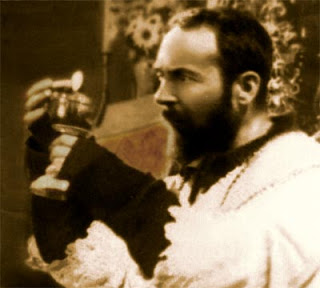Was the Mass of Padre Pio Equal to the Mass of Fr Marcial Maciel (St Thomas Aquinas Answers This Question)
“It is stated in Decretal i, q. 1: ‘The worthier the priest, the sooner is he heard in the needs for which he prays.'”
“Again, the prayer put up in the mass can be considered in two respects: first of all, in so far as it has its efficacy from the devotion of the priest interceding, and in this respect there is no doubt but that the mass of the better priest is the more fruitful. In another respect, inasmuch as the prayer is said by the priest in the Mass in the place of the entire Church, of which the priest is the minister; and this ministry remains even in sinful men, as was said above (Article 5) in regard to Christ’s ministry. Hence, in this respect the prayer even of the sinful priest is fruitful, not only that which he utters in the Mass, but likewise all those he recites in the ecclesiastical offices, wherein he takes the place of the Church. On the other hand, his private prayers are not fruitful, according to Proverbs 28:9: “He that turneth away his ears from hearing the law, his prayer shall be an abomination.” (Summa theologiae III q. 82, a. 6, resp)
What to Watch Next
SHOP THE TAYLOR MARSHALL STORE
Dive Deeper

GET CONFIDENT IN YOUR FAITH
Explore the fascinating world of Catholic teachings with Dr. Marshall. Together you’ll unpack the brilliant answers the Church gives to tough questions about the Faith. The best part: you go at your own pace. Start this exciting journey today.


 >
>



